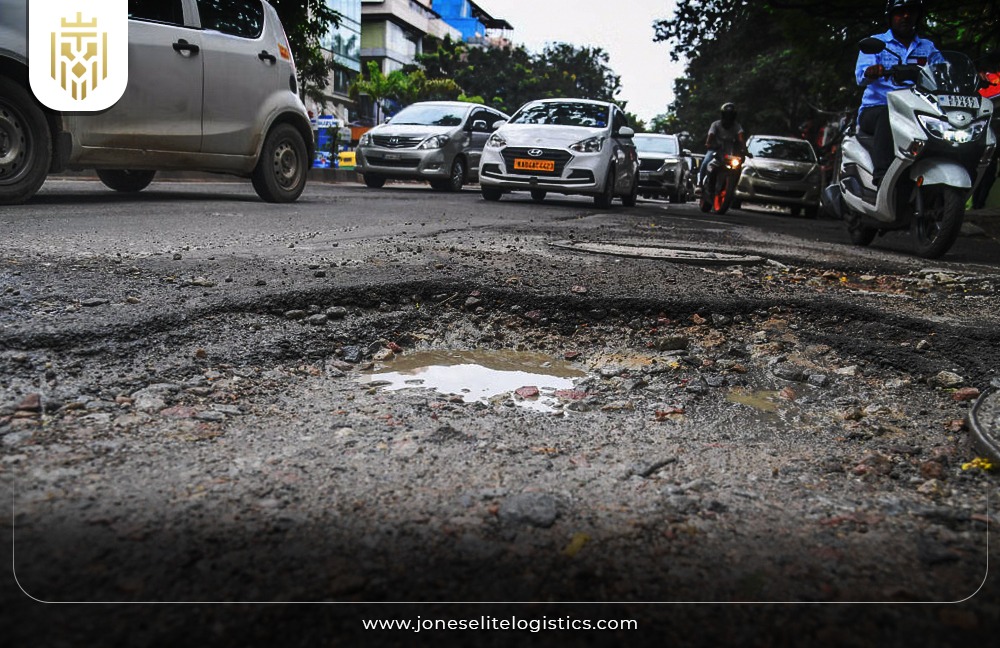Overview of Indian Logistics Solutions
In the modern digitized world, businesses are fixed to streamline supply chains to remain competitive in the market and thus has become the number one priority in businesses of nearly every industry. A streamlined supply chain system ensures that goods and services reach the customer on time while maintaining minimal costs and a high level of customer satisfaction. Furthermore, traditional supply chain management methods have certain drawbacks like inefficient transportation, inventory management problems, the absence of real-time visibility, and high operational costs.
Key Challenges in Traditional Supply Chain Management
Traditional supply chain management has various drawbacks when it comes to its efficiency. Here are a few challenges that traditional supply chain management faces:
Inefficiencies in Transportation
Transport is a crucial part of any logistics system which helps to streamlining supply chains. Nevertheless, transportation inefficiencies pose a challenge to traditional supply chain management. Transportation disruption, poor integration of several means of transportation, and absence of needed infrastructure are among the reasons for time lags in deliveries. These challenges may result in increased expenses and delays in the distribution of goods which in turn will reduce consumer satisfaction.

Inventory Management Issues
Another major challenge that comes with traditional supply chain management which affects the process of streamlining supply chains is inventory management. Inadequate control over the inventory may cause a shortage of products, piling up of goods, or increased logistics costs. This impacts the overall supply chain and leads to customer displeasure.
Lack of Real-Time Visibility
To monitor and control the supply chain operations, real-time visibility is an essential factor. Due to the limited software and outdated systems, it is difficult for traditional supply chain management to match up with the requirement for real-time visibility. This may lead to greater lead times, as well as difficulty in tracing cargoes and problems in meeting client demands.
High Operational Costs
Traditional approaches to supply chain management have an expensive cost structure due to high operational costs. The high costs can be associated with expenses on transportation, inventory management, warehousing, and labor. Such high expenses may reduce the profit and result in limited business growth.
The Role of Indian Logistics Solutions
Indian logistics have been through significant changes in the past few years due to the use of technology, advanced tracking systems and inventory optimization techniques.
Advanced Tracking and Visibility
Indian logistics solutions offer better tracking mechanisms which allows businesses to have real-time information on their shipping location and status. Consequently, this creates a more efficient communication process, less production time, and better customer service. Thanks to GPS and other monitoring systems, companies can track shipments through all the stages of the supply chain hence increasing transparency and efficiency.

Inventory Optimization Techniques
Indian logistics solutions also consider inventory optimization techniques that aid in streamlining supply chain effectiveness. One of the core aspects is forecasting demand, which is done with the help of data analytics, and advanced inventory management systems. Inventory optimization can further help in lowering holding costs, preventing stockouts, and making order fulfillment more adequate.
Integration of Technology in Supply Chain Operations
Indian supply chain solutions heavily depend on technology to deliver maximum customer satisfaction by optimizing supply chain operations. Employment of cloud platforms, smart devices, and artificial intelligence (AI) in automating some procedures and optimizing others to achieve the desired objectives. Integrating technology proves useful in terms of data sharing in real-time, communication, and improved decision-making.
![]()
Cost-Effective and Scalable Solutions
The Indian logistics industry has been well-known for its affordability and scalability. With potential cost savings from other economies of scale, Indian logistics providers can offer lower rates for transport, warehousing and other logistical services. Additionally, these strategies are scalable and can adjust to the new trends of corporate, thus opening doors for further development.
Advantages of Using Indian Logistics Solutions
From cost reductions to future growth, a streamlined supply chain in India’s logistics solutions can provide various benefits for users. Here are some advantages the industry provides:
Improved Efficiency and Timeliness
By tapping into Indian logistics services, businesses could improve efficiency and speed up their operations. Smart monitoring, sophisticated warehouse management systems as well as technology integration allow for efficient operations, on-time delivery of orders, and decreased lead times.
Cost Reduction and Operational Savings
One of the primary benefits Indian logistics solutions provide is cost-cutting and operational savings. With lower tariffs, streamlined use of resources and well-coordinated inventory management businesses can reduce the expenses related to transportation, warehousing, and inventory maintenance. These savings can have a significant impact on the competitiveness and profitability of the organization.
Enhanced Customer Satisfaction
Indian logistics makes it possible for businesses to provide superior customer service as well as timely and precise deliveries. Businesses can meet customers’ demands, reduce order faults, and increase customer care with better tracking capacity and a streamlined supply chain. Satisfied customers will be more interested in repeated business transactions and even promote the brand further.

Scalability for Future Growth
Indian logistics solutions enable organizations to grow and increase their market share. With the availability of a range of flexible services, an adaptive technology platform and a broad network of logistics providers businesses can scale their operations and demand increases. This is essential for companies looking to streamline supply chain operations for long-term growth and market expansion.
Government Support and Initiatives
The government has come up with various policies to help in streamlining supply chains’ operations and are widely appreciated by the Indian logistics industry. Take a look at some of the policies that are supporting the sector:
Policies Fostering Technological Integration
The Indian government has been quite dedicated to promoting the use of technology to streamline the supply chain through different policies and initiatives. This entails creating innovation grants, subsidies to the manufacturers of advanced tracking systems, launching technological platforms, and enhancing collaboration between technology providers and logistics companies.
Infrastructure Development to Support Logistics Solutions
Infrastructure development in India has become a primary objective of the government to support the logistics industry. This entails investing in roadways, railroad networks, harbors, and airports to enhance connection and remove transportation difficulties. Better transportation systems result in quicker and more reliable shipping, lessening the lead times and overall supply chain costs.
Incentives for Companies Adopting Modern Supply Chain Practices
The Indian Government has introduced incentives and support for companies that have modern practices in the supply chain. Such incentives cover subsidizing for adopting advanced systems, tax deductions for investments in technological infrastructure, and grants for coming up with eco-friendly logistics solutions.
Challenges and Considerations
Even by adapting to advanced technological solutions and government initiatives to improve the efficiency of logistics in India, it faces major challenges. Streamlining supply chains operations, businesses have to be aware of the challenges and come up with strategic solutions to overcome them.
Data Security and Privacy Concerns
As companies in today’s world are leaning towards the use of technologies and digital systems concerning supply chain management, information protection and privacy are becoming essential considerations. Indian logistics systems should place the highest priority on deploying highly sophisticated cybersecurity mechanisms and data protection frameworks to prevent losing sensitive data.
Adoption Barriers and Resistance
Some businesses may be reluctant when it comes to the adoption of Indian logistics solutions. This may be due to the hesitancy of organizations to change existing practices, worries about disruptions during the implementation process and the lack of awareness about modern supply chain technology. Clear communication, spreading awareness and collaborations with businesses can help service providers to ensure a smooth transition.
Continuous Training and Skill Development
As technology keeps evolving, it is essential for businesses to continuously train and develop skills in their human resources to ensure the successful integration of Indian logistics solutions. Service providers need to invest in employee training programs and upskilling initiatives to ensure the workforce is up to date with the latest technology. Tracking systems, data analytics software, and of course, other technology tools should be easy for employees to use.

To streamline the supply chain, the Indian logistics industry has been working toward adopting advanced technology, leveraging government initiatives and overcoming challenges. Streamlined supply chain operations offer various benefits to businesses that include reduced costs, improved customer satisfaction and improved efficiency. To avail of streamlined logistics service in India, contact the best service provider, Jones Elite Logistics.
FAQs:
-
What is a streamlined supply chain?
A streamlined supply chain is an efficient and optimized system that ensures the smooth flow of goods and services from the manufacturers to the consumers. It helps businesses to minimize costs, ensure timely delivery and maximize the overall efficiency of their operations.
-
How do you streamline the supply chain?
Using advanced technology to track the shipments in real-time, optimizing inventory management, automating operations and collaborating with stakeholders can help you streamline the supply chain.
-
What are the benefits of streamlining the supply chain?
A streamlined supply chain system ensures that goods and services reach the customer on time while maintaining minimal costs and a high level of customer satisfaction. This helps retain customers, ensures increased profits and reduces errors.







